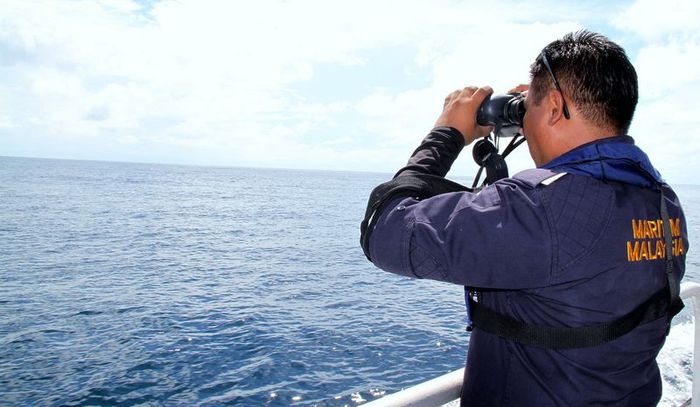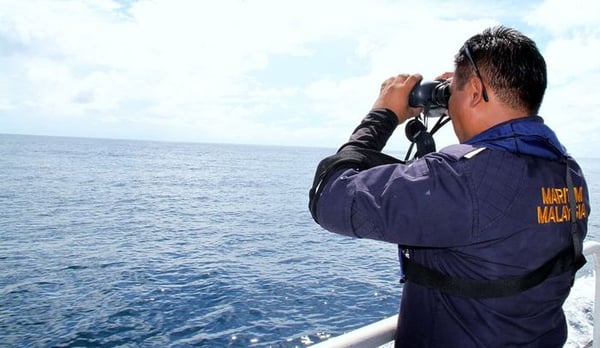

Since 1982 oceans have been governed by the United Nations Convention on the Law of the Sea (UNCLOS). Countries calculate their maritime claims according to a simplified outline of their territory. For countries attached to a continental land mass, like Italy, it roughly tracks the coast; for archipelagoes, like Indonesia, it skirts the farthest islands. Any water enclosed within this line, whether fresh or salty, is classed as inland water. Countries have absolute authority here: no ship can pass through without permission, except on official sea lanes, and domestic laws apply as they do on land.
From this zone, claims on the sea radiate out in rings of diminishing sovereignty. Countries can claim up to 12 nautical miles of territorial sea: ships from other countries can sail freely through, but cannot fish, carry out military exercises or do scientific research. Beyond this is up to 12 nautical miles of buffer space, known as the contiguous zone. Next comes the largest swathe, the exclusive economic zone, extending up to 200 nautical miles from the coast. Here states have sole rights to drilling, fishing and mining. Where countries are close together and claims overlap, the boundary is normally set midway between them. Beyond these rings, countries can claim rights to their continental shelf (rock jutting out from their land below the surface of the sea) though not to the water above it. The rest of the oceans are international waters, where all countries have much more freedom.
UNCLOS was the result of decades of negotiation. The League of Nations, a forerunner to the UN, made a first attempt to broker a deal in 1930. In 1945 America claimed exclusive rights to its continental shelf and soon began drilling for oil in the Gulf of Mexico. Denmark, Norway and others followed suit in the North Sea, whereas Chile, Peru and Ecuador expanded their fishing zones to fend off pilfering by foreign ships. The scramble for offshore resources galvanised the international community, says Andreas Osthagen, of the Fridtjof Nansen Institute, a research foundation near Oslo. UNCLOS expanded fishing and drilling zones, and formalised the right to make claims based on continental shelves. Although the cold-war superpowers, America and the Soviet Union, both benefited, newly independent former colonies also formed a powerful negotiating bloc.
The convention has now been ratified by 168 countries. The most notable absentee is America, whose treaty-shy Senate has resisted lobbying by the navy to sign it, though America expects China, which has ratified the convention, to abide by its rules in the South China Sea. The law is broadly accepted as customary, even by those who have not ratified it. It has channelled disputes into negotiation, arbitration or to the International Court of Justice (ICJ); where necessary it has let sleeping dogs lie.
These mechanisms have not always worked. In 2016 an arbitral tribunal under UNCLOS upheld a case brought by the Philippines, one of several littoral states in the South China Sea disputing China's territorial claims there. The tribunal rejected China’s expansive claims, but there is no way to enforce the ruling. China has continued to build gun-laden islands around the contested Spratly archipelago. Most realists accept that China’s claim, though invalidated by the international courts, is now a “fait accompli”, says Ben Saul of the University of Sydney. Tensions in the South China Sea may be rising, but this dispute is “the fly in the ointment” for an otherwise successful treaty, says Michael Byers of the University of British Columbia. He suggests that most unsettled boundaries at sea go unnoticed and that even apparent hotspots can be misleading. NATO forays into the Arctic and the efforts by Canada, Denmark and Russia to claim the North Pole (based on continental-shelf arguments) mask co-operation among all three countries on surveying. Land-border conflicts, usually closer to civilians, rise to the top of the geopolitical agenda; tiffs at sea are simply not as significant, Professor Byers adds.
Yet such conflicts can also provide an opportunity for politicians to win favour with voters at home. Shows of strength by Turkey in the Mediterranean have thus far risked little more than slight damage to a boat, but allowed President Recep Tayyip Erdogan to bolster his image as a strongman. During the Brexit negotiations, the British government cast fishing rights as an essential matter of national sovereignty, even though maritime borders between Britain and its neighbours were not in doubt, and the industry accounts for less than 0.1% of economic output. The symbolic value of fishing, says Philip Steinberg of Durham University, shows the power that the sea can exert over countries that tie their identities to the ocean.
Source: The Economist
Related Posts
Red Sea crisis is a warning that we must invest..
In the ongoing operations in the Red Sea against the Iranian-backed Houthis, led by the United..
The Challenge With the Deter and Degrade Approach..
In a month marked by ongoing strikes on Houthi targets in Yemen by the United States and..
U.S., UK Navies Respond to Merchant Vessel..
United States and United Kingdom Royal Navy forces responded to a distress call from a merchant..




